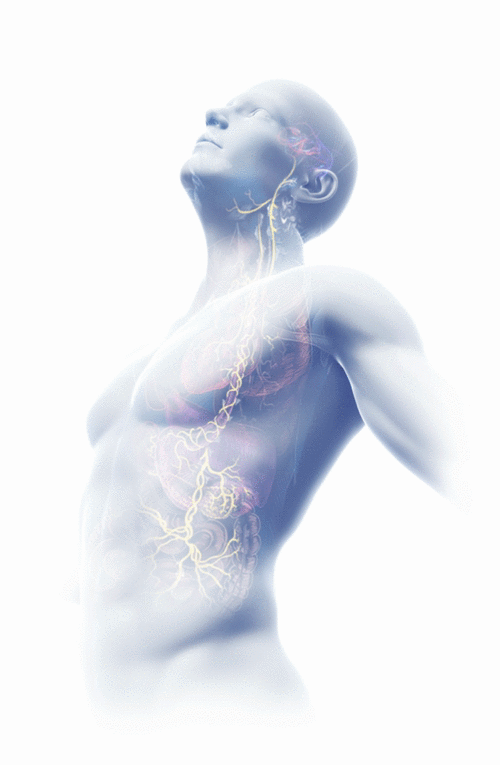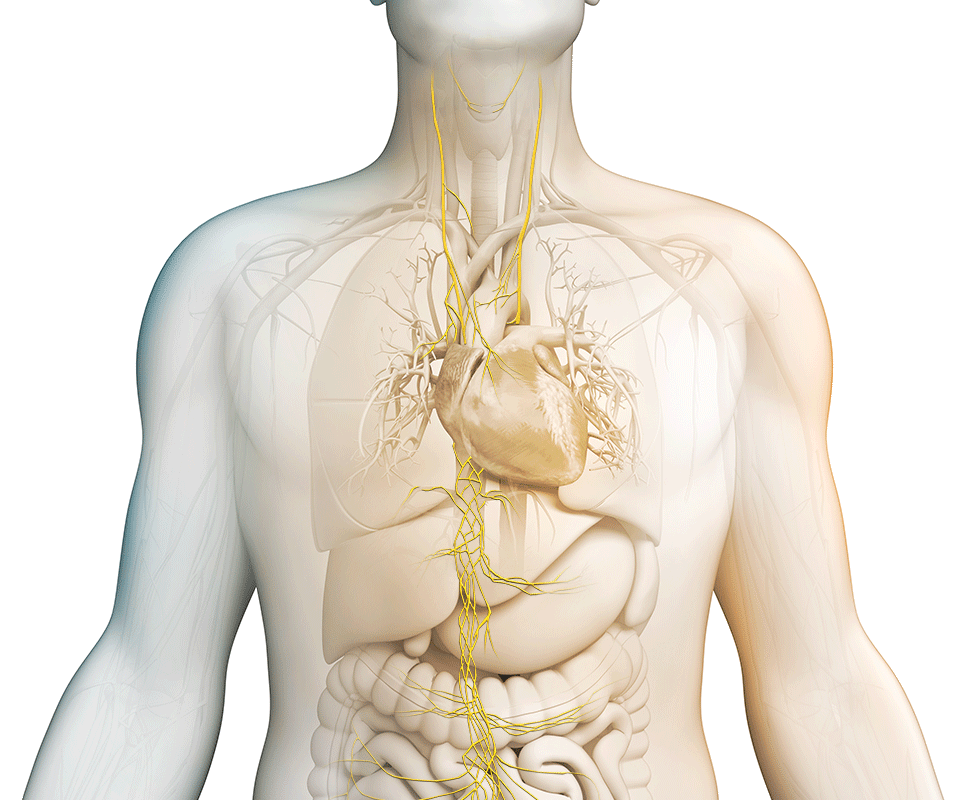Vagus Nerve Activation Through Cryotherapy

Originally posted on https://www.cryoinnovations.com/blog/2019/6/18/vagnus-nerve-activation-through-cryotherapy
The Vagus Nerve is one of the twelve cranial nerves in our body. Cranial nerves are pairs of nerves that are responsible for connecting our brain to the other parts of our body. The Vagus Nerve is the longest of the cranial nerves which originate from the medulla part of the brain, connecting through the neck and chest, stretching all the way to our abdomen.
Just like any of the cranial nerves, the Vagus Nerve also serves a specific purposes. This nerve plays one of the most critical roles in the human body as it helps to regulate the heart rate, blood pressure, sweating, and digestion. Communication in the Vagus Nerve goes two-way, from the brains down the gut, and from the gut up to the brain. When the communication is from the brain to the gut, it affects mostly digestion, the secretion of digestive enzymes, and gastrointestinal motility. When digestion is not working well, your body is affected and may trigger challenges like constipation and diarrhea. When communication is running from the gut up to the brain, it affects your perception of hunger and fullness. It also affects your mood and stress levels, as well as the activation of your inflammatory stress response.
Green Light Eat Red Light Don’t Eat
You can see now that the Vagus Nerve may help us lose weight by sending signals that we are full after eating small portions of food, or it may help us feel good (by improving our mood and reducing stress levels) and help us perform well in class or in a competition.

In regards to the functions of the Vagus Nerve, Cold Therapy or Cryotherapy, can act as a stimulating agent, thereby helping us control our stress and inflammatory levels using less effort. The Vagus Nerve works through sending signals to the brain, something that can be triggered by Cryotherapy. When a patient is subjected to extremely low temperatures in the Cryo Machine, the many organs, like the chest, abdomen and muscles, that are connected to the Vagus Nerve send distress signals to the brain. This process is anti-inflammatory as it signals the brain to turn down the stress response and reduce the production of inflammatory cytokines. This process works really well for athletes who are involved in extreme sports that subject their muscles to inflammatory pressures.
Stress and Mood Stabilizer
Just as the Vagus Nerve is also responsible for reducing stress levels and bad mood, cryotherapy can also help you not forget things easily. Forgetting things is associated with depression, according to the findings of Arnold Pick who had so much to write about his findings on dementia and depression. Other benefits of Cryotherapy include reducing inflammation in patients who have injured their muscles as well as helping with keeping your skin young by reducing the fat that is between the muscles and the skin. The presence of the fat between your skin and muscles results in small depressions on your skin. These small depressions are called cellulite.
Learn more about the benefits of cryotherapy and go through the many cryotherapy clinical studies.
